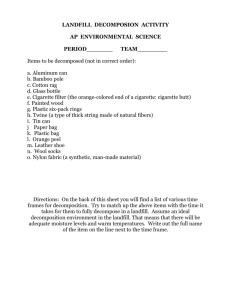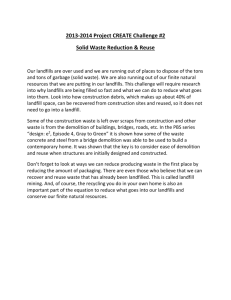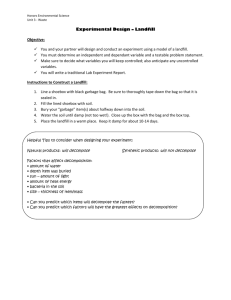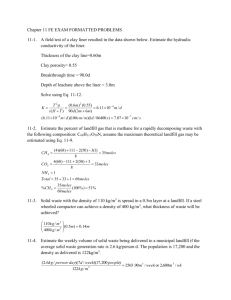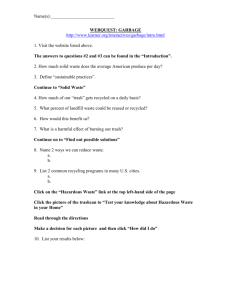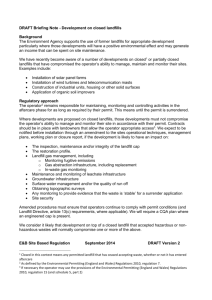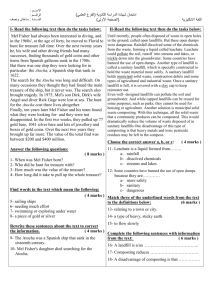Build Your Own Landfill
advertisement
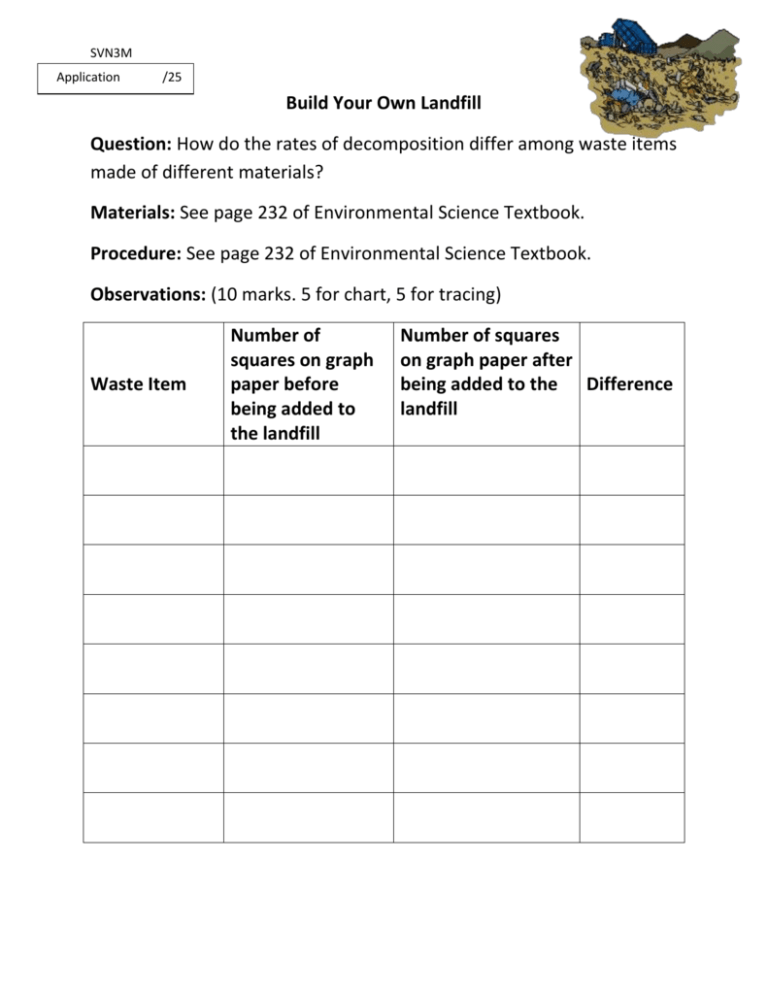
SVN3M Application /25 Build Your Own Landfill Question: How do the rates of decomposition differ among waste items made of different materials? Materials: See page 232 of Environmental Science Textbook. Procedure: See page 232 of Environmental Science Textbook. Observations: (10 marks. 5 for chart, 5 for tracing) Waste Item Number of squares on graph paper before being added to the landfill Number of squares on graph paper after being added to the Difference landfill SVN3M /15 Analysis Questions: (to be completed 3-4 weeks from landfill build) 1. Which waste item had the largest difference in size? Smallest? Explain why there was such difference in decomposition rate between the items. (3 marks) 2. What conclusion can you draw from the rate of decomposition of these materials? How should /does knowing the rate of decomposition influence you’re your actions as a consumer (3 marks) 3. Pick 3 objects made from materials on the “disappearing act” page that have a long decomposition rates. Suggest another appropriate material on the list that could substitute in place of the original material and explain why it is a good choice. (3 marks) 4. Pick a situation in our everyday lives where a wasteful and slow decomposing material is used regularly without regard. Explain how and what it could be substituted with to limit the environmental impact. (3 marks) 5. Landfills are split into two categories. Classic landfills which have little technology and involve covering waste with dirt and modern” sanitary” landfills which have an impermeable liner as well as a layers of clay and gravel separating the waste from the surrounding ground. Discuss 3 benefits to using a sanitary landfill over a conventional one. (3 marks) SVN3M WASTE ITEMS BEFORE: SVN3M WASTE ITEMS AFTER:
